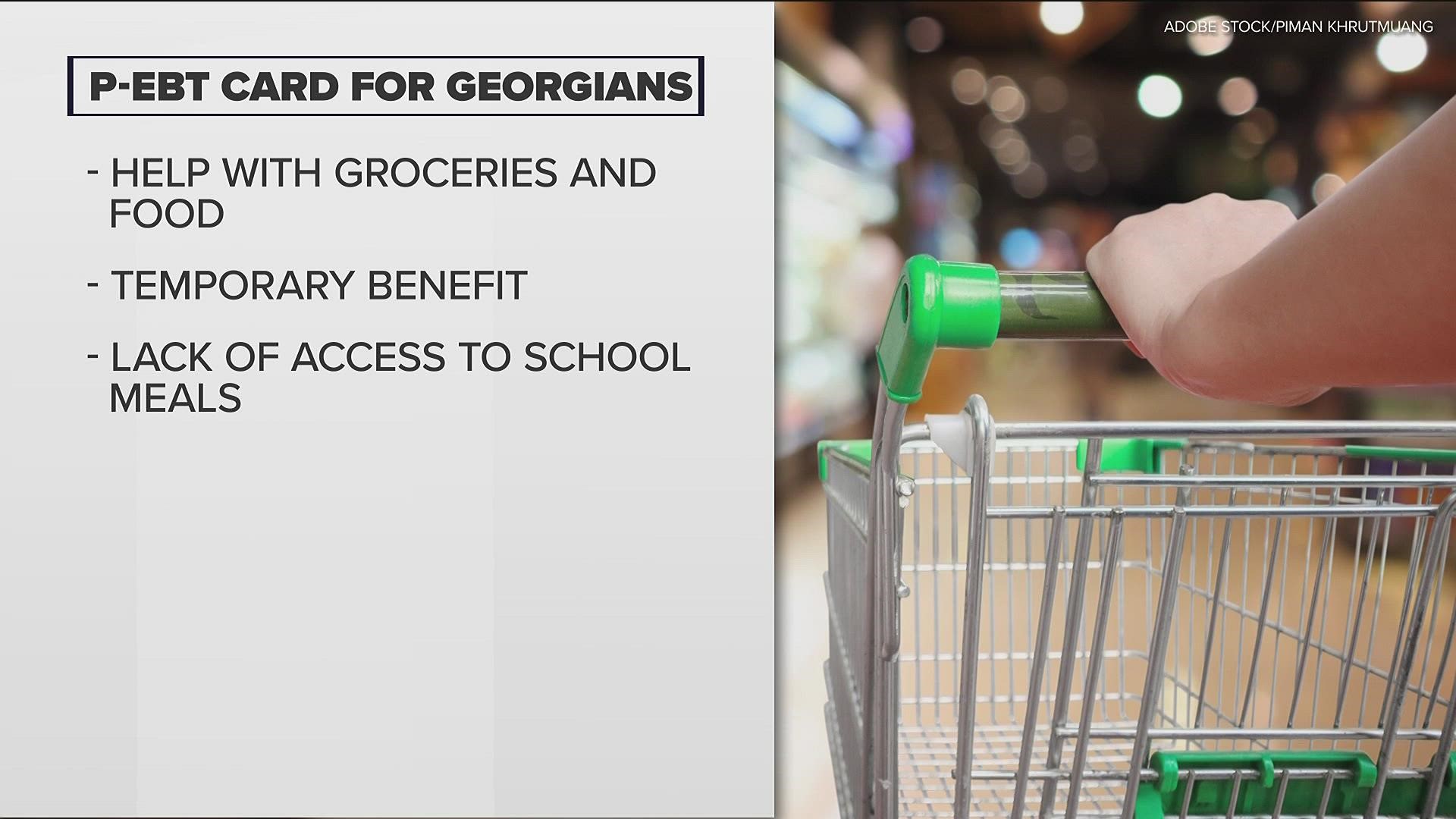ATLANTA — A Georgia lawmaker is asking the governor to keep the state enrolled in federal benefits that helped feed students across the state during the pandemic.
Congresswoman Lucy McBath penned a letter to Gov. Brian Kemp last week, inquiring about Georgia's timeline to apply for the Pandemic Electronic Benefit Transfer (P-EBT) program for the current school year.
The program is made possible by the Families First Coronavirus Response Act. The law helped create a temporary benefit called the Pandemic-EBT. It's meant for children who didn't have access to free or reduced-price school meals during the school year, and for SNAP-eligible children enrolled in childcare and K-12 schools due to the pandemic. According to McBath, the program was a response to remote learning for children who receive free or reduced-price school lunches.
McBath said her letter to the governor was to ensure that Georgia obtains a timely U.S. Department of Agriculture-approved plan to extend P-EBT benefits into the summer months, according to a news release from the congresswoman's office.
Currently, all children attending public school or public charter schools who would normally receive free or reduced-price lunch can now receive P-EBT. It's a broad program and families can check specific eligibility requirements by age and grade level here.
A spokesperson with the Georgia Department of Human Services said some students are automatically eligible for the benefit if they attend a Community Eligibility Provision school, which is why thousands of students across the state received P-EBT cards in the mail.
McBath wants to make sure families continue to receive funds even after the school year ends.
"During the summer months, children are most vulnerable to food insecurity since schools are out of session and summer meal programs only reach a small percentage of children," she wrote in her letter to the governor.
The congresswoman cites the monetary value of $6.82 a day of missed breakfast, lunch and a snack provided to kids their families throughout the pandemic with the P-EBT program "has prevented children nationwide from food insecurity during remote schooling." She notes that the impact of the program is a 30% reduction in food hardship for children of low-income families just a week after the benefit was issued.
"This means that over 800,000 children are at risk of losing out on federally funded nutrition assistance this summer if the state does not take action," she said.
Read the congresswoman's full letter here. To learn more about the P-EBT program in Georgia, click here.

